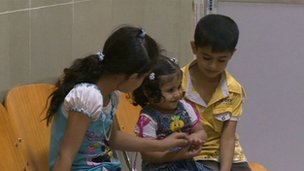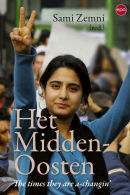(06-05-2013) Situation of children in Iraq 'a neglected crisis'
(29-04-2013) Immediate Release : Report of a Fact Finding Mission on Congenital Birth Defects in Fallujah, ...
(11-05-2013) Illegal raid of a protesters home
(10-05-2013) Protests, violence and distortions
(14-05-2013) Iraq's invisible refugee crisis
(10-04-2013) Iraqi refugees in Syria feel new strains of war
(14-05-2013) Iraq's invisible refugee crisis
(10-04-2013) Iraqi refugees in Syria feel new strains of war
(24-11-2012) Israeli War Crimes: “Surgical Strikes” against Palestinian Children. The “International Community” ...
(23-12-2012) How many more innocent people will be sentenced to death for the bombing of the Foreign and Finance ...
The BRussells Tribunal is independent and wants to remain independent.
The BRussells Tribunal is an activist think tank and peace organisation with a special focus on Iraq. Read more...



 The times they are a-changin' is het eerste grondige Nederlandstalig overzicht dat voorbij oppervlakkigheden en algemeenheden wandelt, en ook nog eens de hele regio bestrijkt, van Egypte en Tunesië tot Marokko, Libië, Syrië, Libanon, Palestina, Jemen, Jordanië, Irak, Bahrein en Israël. Daar bestaat een woord voor: een standaardwerk.
The times they are a-changin' is het eerste grondige Nederlandstalig overzicht dat voorbij oppervlakkigheden en algemeenheden wandelt, en ook nog eens de hele regio bestrijkt, van Egypte en Tunesië tot Marokko, Libië, Syrië, Libanon, Palestina, Jemen, Jordanië, Irak, Bahrein en Israël. Daar bestaat een woord voor: een standaardwerk.